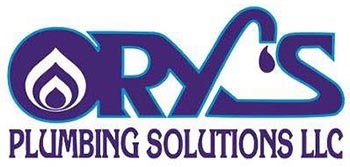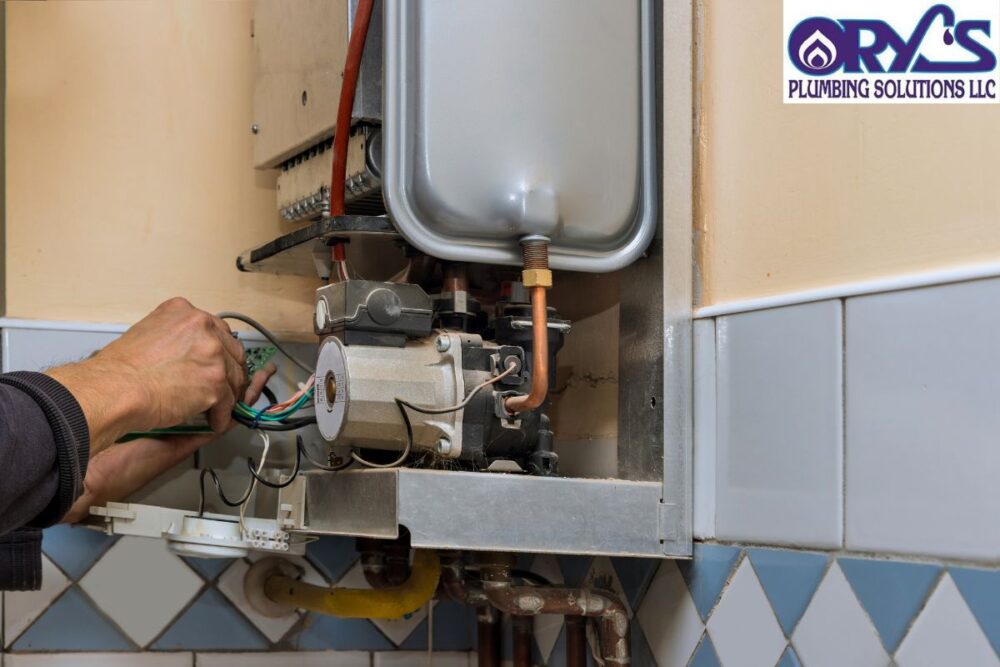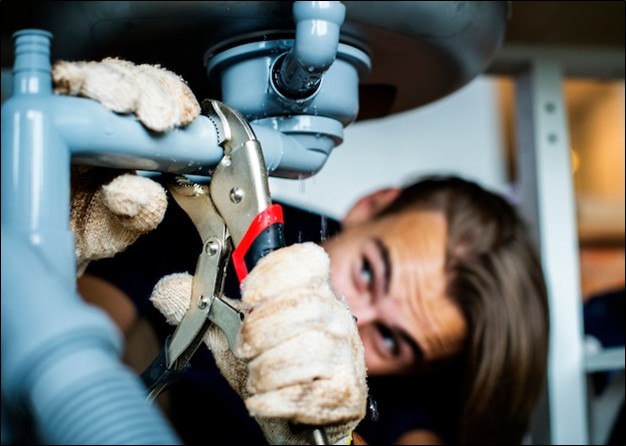What Are the Signs of a Failing Water Heater?
Key Takeaways
- Leaks, rusty water, and strange noises are common signs of a failing water heater.
- Sediment buildup can cause low water pressure and inconsistent temperatures.
- Foul smells and rising energy bills often signal internal damage or inefficiency.
- Water heaters over 8–12 years old are more likely to need replacement.
- Acting early on these signs can prevent costly repairs and water damage.
Knowing the signs of a failing water heater is very important for every homeowner. When your water heater starts to fail, it can cause big problems like no hot water, water damage, or expensive repairs. Catching the signs early helps you fix the problem before it gets worse and costs more money.
Common Signs of a Failing Water Heater
Water Leaks Around the Heater
If you see water pooling or dripping near your water heater, it means there is a leak either from the tank or the pipes. Leaks are serious because they often mean the tank is rusting or damaged inside. Usually, a leaking water heater needs to be replaced, not just repaired, because the tank can’t be fixed easily.
Strange Noises Coming from the Heater
If your water heater makes popping, banging, or rumbling sounds, it’s a sign of sediment buildup inside the tank. Sediment is made of minerals that settle at the bottom and cause the heater to overheat and make noise. These sounds mean your water heater is working harder and could fail soon.
Inconsistent or Low Water Temperature
When your hot water isn’t as hot as it used to be or the temperature changes suddenly, it might mean the heating element or thermostat is failing. This causes the water heater to not heat water properly, leaving you with cold or lukewarm water.
Running Out of Hot Water Quickly
If your hot water runs out faster than normal, it could be because sediment has built up inside the tank, reducing its capacity. It can also mean the heating elements are failing and not heating enough water. This makes your showers shorter and less comfortable.
Discolored or Rusty Water
When you see yellow, brown, or rusty water coming from your hot water taps, it’s a sign the tank is corroding inside. The anode rod, which protects the tank from rust, might be failing. Rusty water is a warning that your water heater might soon leak or break down.
Low Water Pressure from Hot Water Taps
If the water pressure from your hot water taps is lower than from cold taps, sediment buildup might be clogging the pipes or the tank. This reduces the flow of hot water and can make washing or showering difficult.
Moisture or Puddles Around the Heater Base
Any visible water or dampness around the base of the water heater is a bad sign. It usually means the tank is corroded and could fail soon. This moisture can also damage the floor and nearby walls if not fixed quickly.
Smell of Rotten Eggs or Sulfur
A foul smell like rotten eggs coming from your hot water is caused by bacteria growing inside the tank. This is a sign that the water heater is not working properly and needs attention soon.
Increased Energy Bills
If your energy bills suddenly go up without using more hot water, your water heater might be working inefficiently. Sediment buildup or failing parts make the heater use more energy to heat water, which costs you more money.
How to Check the Age of Your Water Heater
You can find the installation or manufacture date on a sticker or label on your water heater. Most water heaters last about 8 to 12 years. If your heater is older than that or showing signs of failure, it’s a good idea to think about replacing it before it breaks down completely.
What to Do If You Notice These Signs
If you see any of these signs, call a professional plumber right away. Some problems can be fixed temporarily, but often replacement is the best option to avoid bigger issues. Upgrading to a new, energy-efficient water heater can save you money in the long run and give you reliable hot water.
Conclusion
Watch for leaks, strange noises, inconsistent hot water, rusty water, and other signs to catch water heater problems early. Acting quickly can save you from costly repairs and damage. Regular maintenance also helps your water heater last longer and work better.What Are the Signs of a Failing Water Heater?


